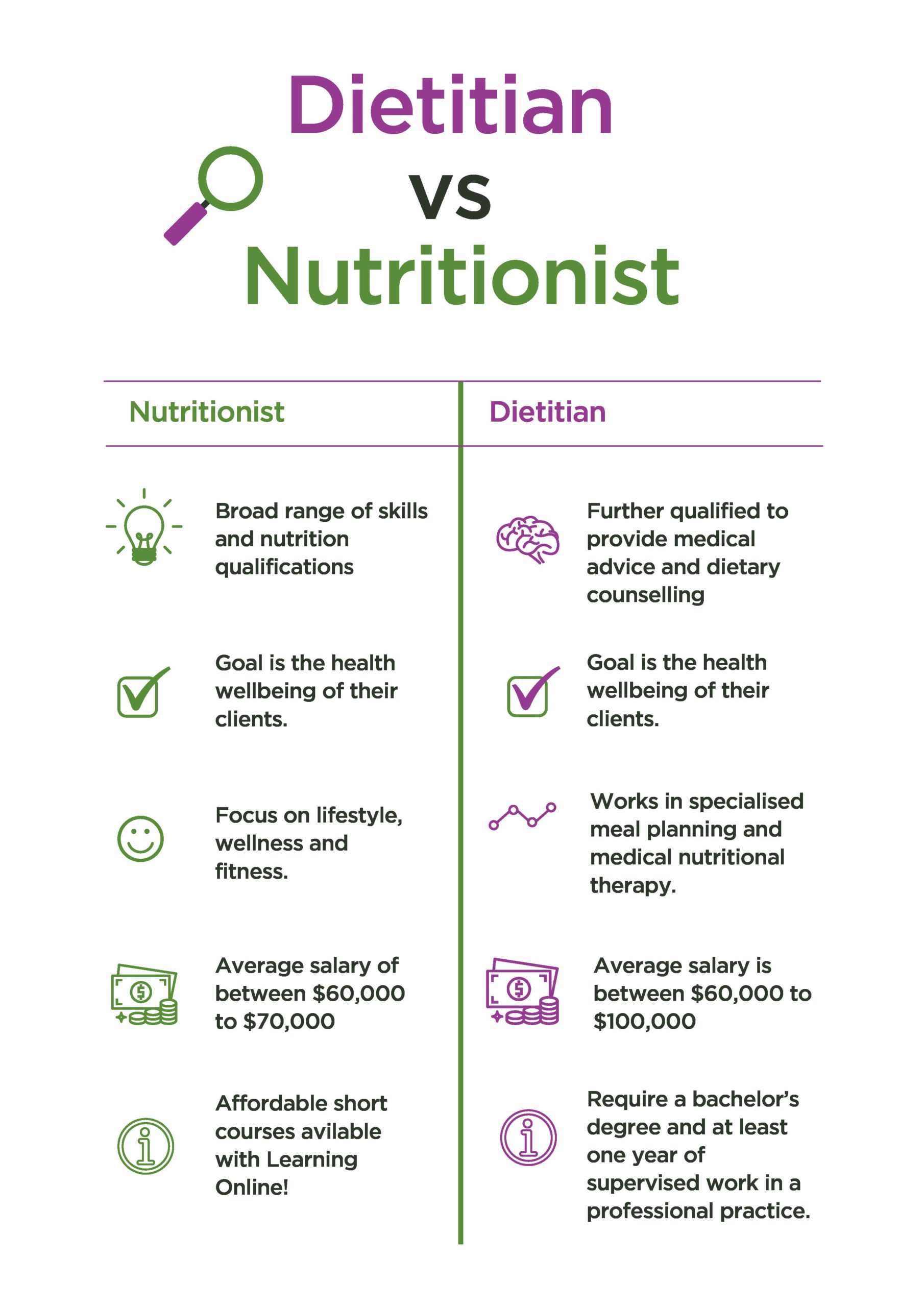All Categories
Featured
Table of Contents
-1
In the United States and several various other countries, a dietitian is a board-certified food and nourishment expert. They are extremely enlightened in the field of nourishment and dietetics the science of food, nourishment, and their influence on human health and wellness. Via substantial training, dietitians get the knowledge to give evidence-based medical nourishment therapy and dietary therapy customized to meet an individual's needs.
-1To earn these credentials dietitians-to-be need to initially gain a bachelor's degree or equal credit histories from an accredited program at a college or university. Commonly, this requires an undergraduate science degree, including courses in biology, microbiology, organic and inorganic chemistry, biochemistry, anatomy, and physiology, as well as even more specific nutrition coursework.
Clinical Dietitian
-1This permits them to assess severe needs, prioritizing deadly problems. Inpatient and outpatient dietitians also supply nutrition education and learning to people with specialized needs, such as those newly out of surgical procedure, in cancer cells treatment, or identified with persistent illnesses like diabetes or kidney disease. In the outpatient setup, they offer a lot more in-depth nutritional counseling functioning towards a nutrition-oriented objective.
-1Research dietitians typically function in research study hospitals, companies, or universities. Once dietitians have actually gained their qualifications and are working in the area, they can go on to specialize in a specific subcategory, such as pediatric medicines or sporting activities dietetics.
-1Others may work as health and nourishment specialists in media or as public speakers (Accredited Nutritionist). Dietitians are certified to handle nutrition treatment across a span of severe and chronic conditions.
Sports Nutritionist
-1In many states, such as Alaska, Florida, Illinois, Maryland, Massachusetts, and Pennsylvania, RDs and CNSs are provided the exact same state certificate, generally called an Accredited Dietitian Nutritional Expert (LDN) permit. In states that don't control using this term, any person with an interest in diet plan or nutrition might call themselves a nutritionist.
-1However, because uncredentialed nutritionists usually do not have the competence and training for clinical nourishment therapy and nourishment counseling, following their advice can be considered dangerous (). Prior to getting in touch with a nutritionist, you might intend to check whether your state regulates who may use this title. In the united state states that do not regulate the term, no degrees or qualifications are needed to be a nutritional expert.

-1
In states that do mandate licensure, the CNS or RD credential might needed. Those with CNS qualifications are health experts like nurses or doctors with advanced health and wellness levels that have actually sought out extra coursework, finished monitored method hours, and passed a test looked after by the Board for Certification of Nutrition Specialists.
-1While some of these techniques might have durable clinical support, others might not. Providing nourishment guidance without the proper knowledge and training can be unsafe, specifically when counseling those with health and wellness problems. Therefore, if you are considering consulting a nutritional expert, you might desire to ask if they are a CNS or have state licensure or qualification, or an additional credential.
Weight Management Dietitian – Warwick
-1A number of states specifically manage this term. Additionally, nutritional experts might pursue an innovative CNS certification.
-1It can be testing to help people make genuine, long lasting changes in their lives. However, when you get an effective case, the benefit can be greatly gratifying. If it's a profession option that you intend to seek, there are 2 main occupation choices readily available to you. Both dietitians and nutritional experts offer a series of nutrition-based services to clients.
-1They must have completed some level of education in their area. They are likewise required to have actually completed approximately a year of supervised work, functioning within a guided program at a medical care facility, catering service, or neighborhood body. Dietitians have much higher assumptions put on their capacities and level of expertise.
-1This means that there is no body that manages their credentials and no specifically rigid guidelines that nutritionists need to follow in order to be able to exercise. Dietitians, on the various other hand, are registered with across the country acknowledged bodies, such as the Dietitians Association of Australia. They need to abide by the National Proficiency Criteria for Dietitians.
Forensic Nutritionist – Joondalup

-1
However, you can exercise as a nutritional expert without the exact same level of certification as a dietitian. Nutritionist courses can differ in size and quality, with some as brief as six weeks and covering far much less material than a dietetics program. Depending on your education and learning provider, you can get a considerable quantity of expertise via researching a simple nourishment program; nevertheless it's important to investigate the program content prior to commencing.
-1This can consist of attending market workshops or reviewing market publications. Nutritional experts, on the various other hand, usually earn their qualifications in order to supplement various other credentials and give much better advice to their clients. Nutritional experts can acquire work in a variety of fields, including public wellness guidance, guidance for people, and working with exclusive organisations.
-1Nutritional experts can deal with sporting organisations, fitness centers, institutions and encourage media electrical outlets on basic terminology and appropriate usage of terms. Usually, individuals will certainly look for the services of a nutritionist to aid them in getting into form. Dietitians can operate in a lot of the exact same functions as nutritionists. With a greater level of certification, they can quickly enter a duty that a nutritionist would hold, supplied they are otherwise equal.
Geriatric Nutritionist – Warwick 6024
-1Dietitians commonly function with even more medically delicate customers. Due to the fact that of the high level of knowledge called for to supply services to these people, just certified dietitians are allowed to give treatment.
-1In Australia there is a difference in between a dietitian and other nutritional wellness suppliers consisting of nutritionists. All dietitians are nutritional experts, however nutritional experts without a dietetics credentials can't call themselves a dietitian. While there are resemblances between a dietitian and nutritional expert there are distinctions in certifications and policy. The dietetic career is controlled and meets stringent criteria as laid out by the National Alliance of Self Regulating Wellness Professions (NASRHP).
-1Dietitians with the Accredited Practising Dietitian (APD) credential devote to ongoing training and education throughout their jobs. They follow our code of conduct. Dietitians have the understanding and abilities found in the National Competency Requirements for Dietitians. As a career, nutritionists are not managed in Australia under NASRHP or accredited under a single regulatory body.
Nutritionist Services
-1If you have a chronic wellness problem and a care plan from your General practitioner, you may be able to assert a Medicare discount when you see an APD. The primary purpose of people functioning in the career of dietetics is personified in this declaration: The career of dietetics adds to the promotion of health and the avoidance and treatment of ailment by optimizing the nutrition of populations, neighborhoods and individuals. Forensic Nutritionist.
Latest Posts
Privacy Policy – Camillo
Digestive Health - Perth – Midvale
Diabetes & Insulin Resistance (Cottesloe )